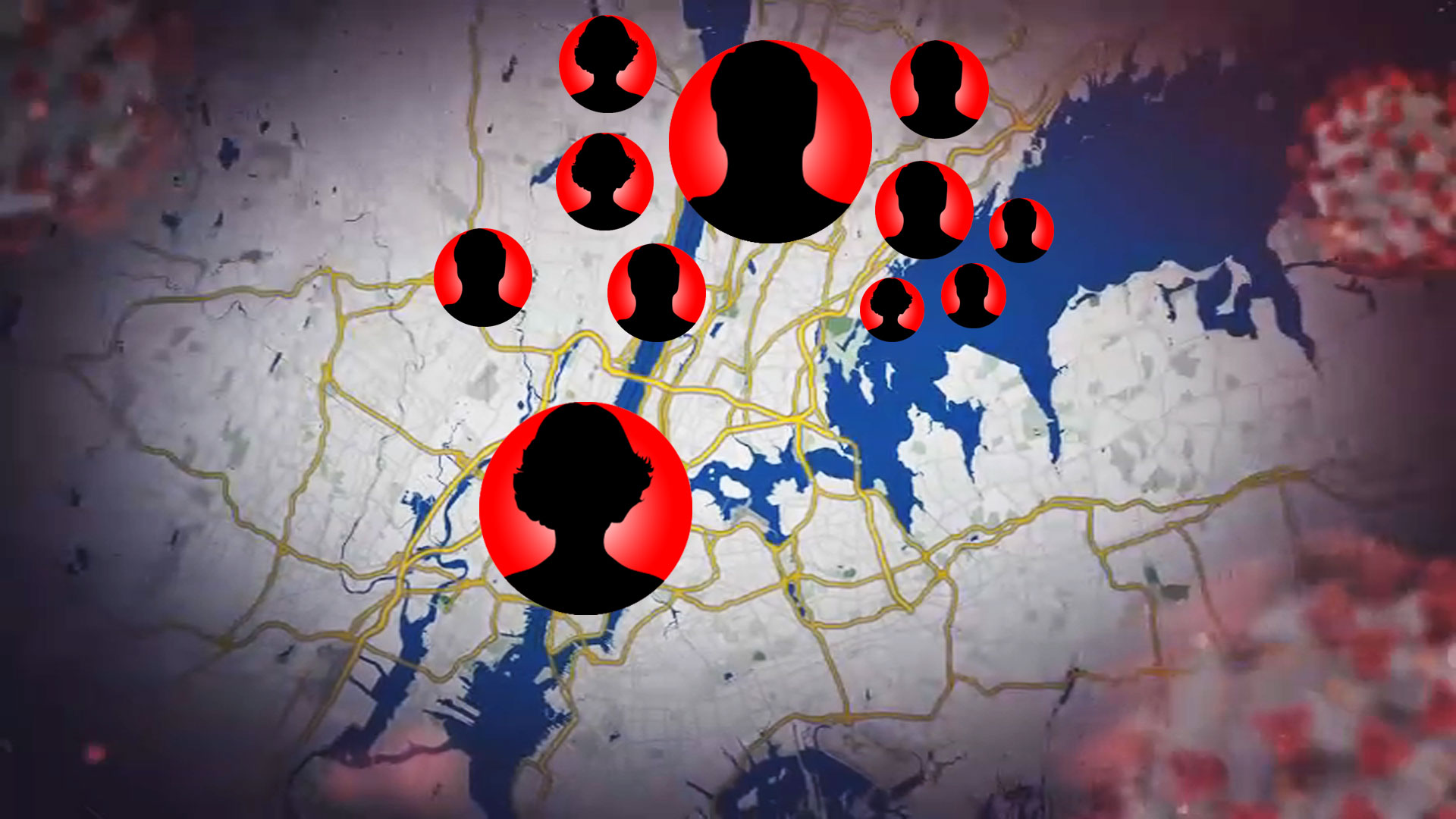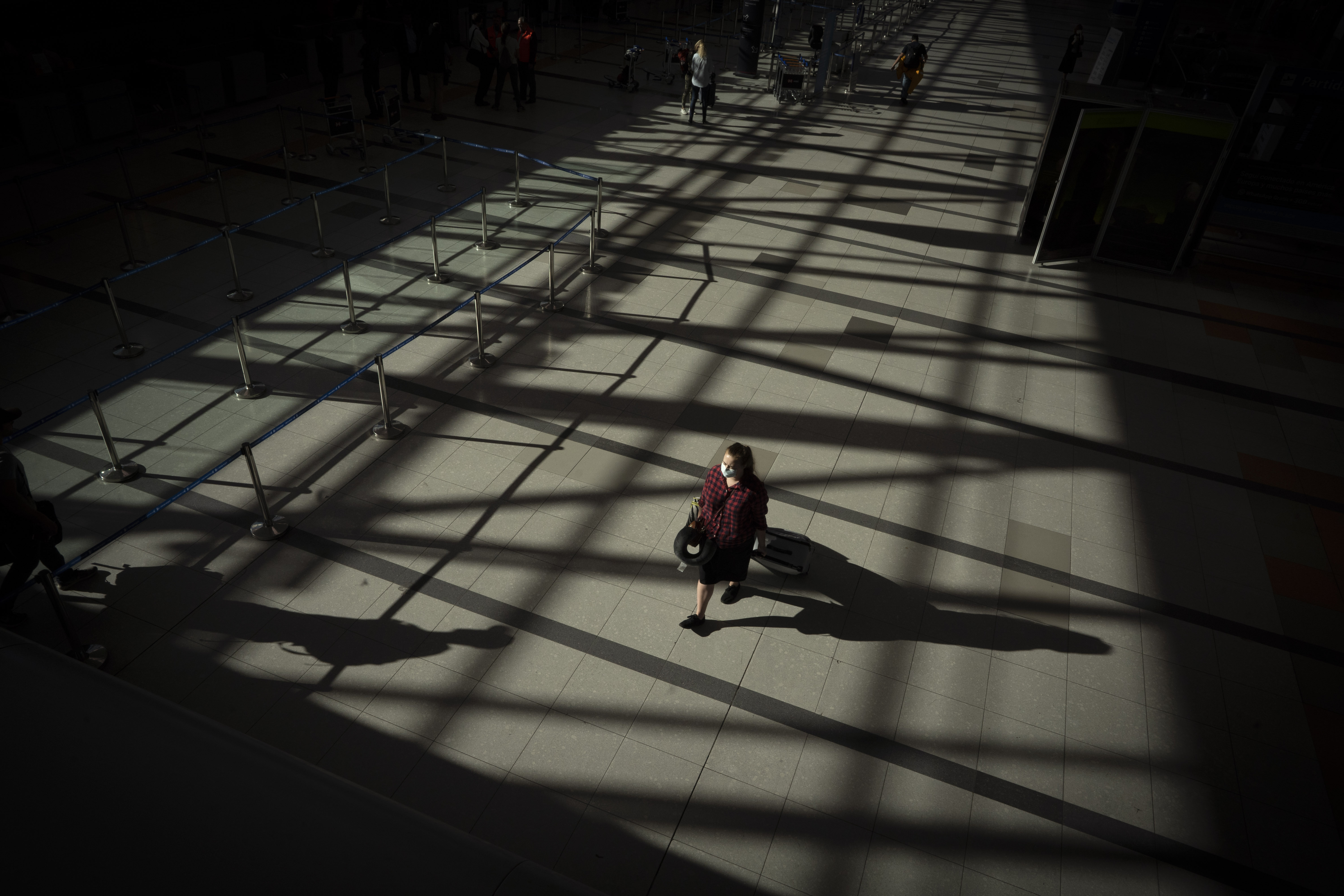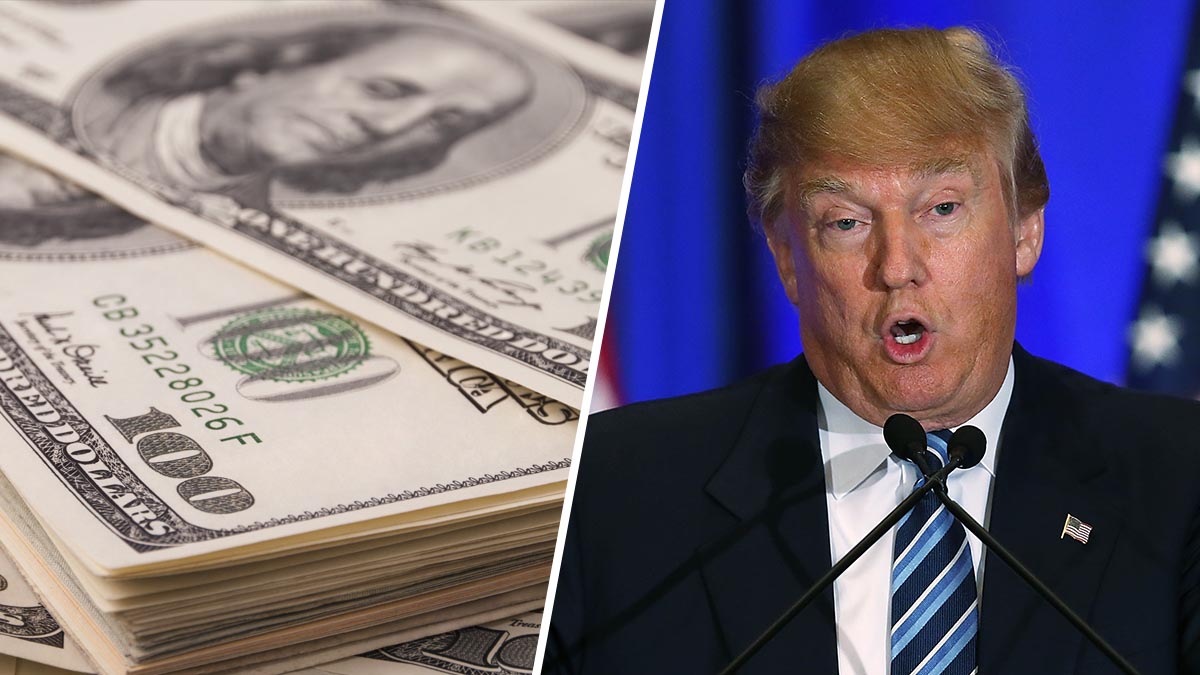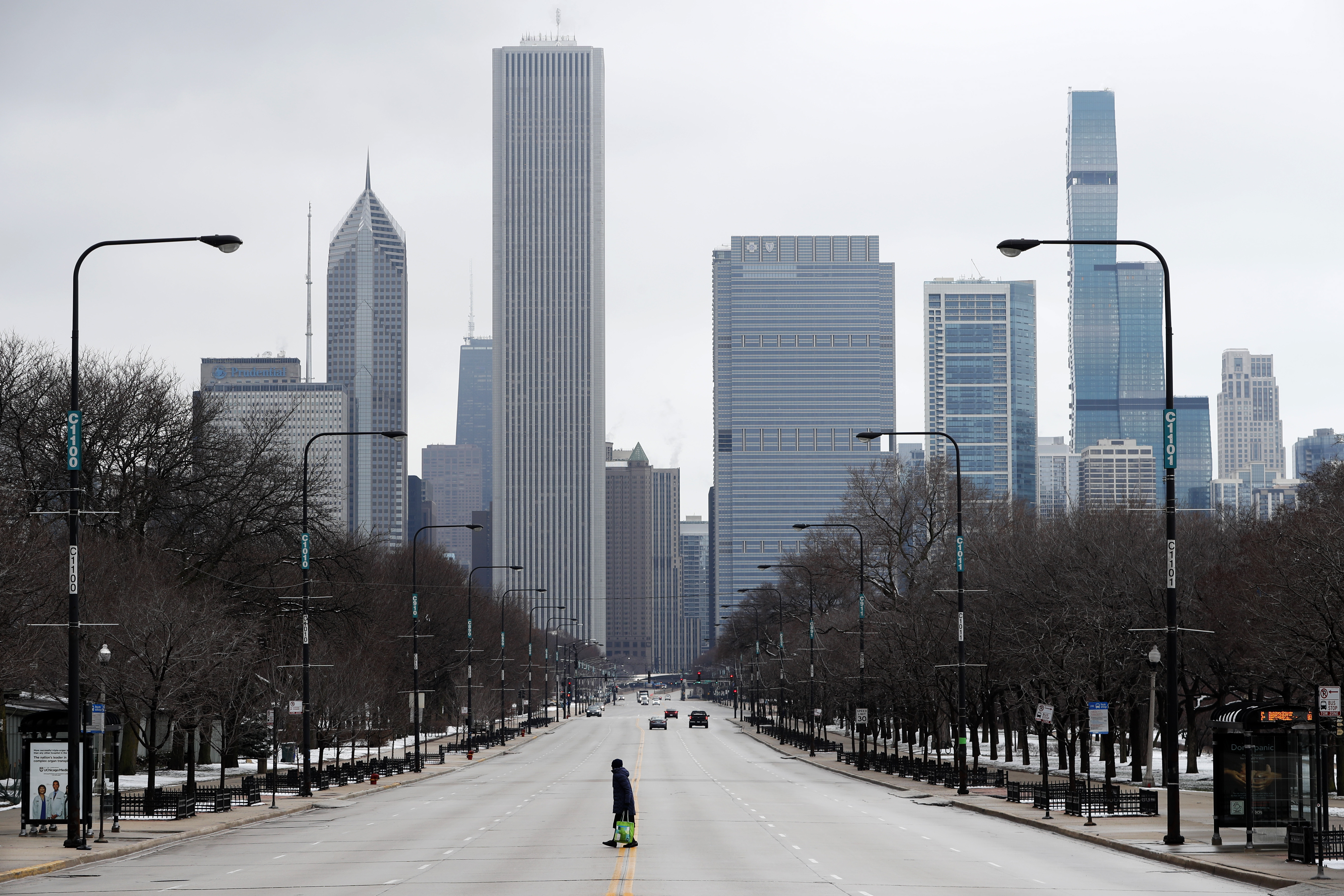What to Know
- An order requiring most New Yorkers stay home went into effect Sunday, part of the state's efforts to stem the coronavirus pandemic; "PAUSE" order shuttered “nonessential” businesses as well as banned “non-essential gatherings of individuals of any size for any reason”
- States are ramping up testing, leading to more cases and more chaos; NJ had to shut down its Bergen Community College center yet again Monday because it hit capacity -- this time before 7:30 a.m.; the new Holmdel one also had to close within a few hours after opening
- As of Monday, more than 26,000 people in New York, New Jersey and Connecticut had tested positive for COVID-19; at least 220 have died
New York state is officially on "pause" but still in a desperate race to curb a pandemic that has shown no signs of slowing, as COVID-19 cases surged past 23,000 cases by the end of the day Monday, an increase of nearly 7,000 from Sunday.
At least 183 people have died in the Empire State — about 1 percent of the global total, Gov. Andrew Cuomo said in his daily briefing. More people will die, officials warn, some simply because hospitals lack the fundamental resources to save them.
New York City has faced the brunt of the impact, adding more than 3,000 cases and now has 13,119 — which accounts for 60 percent of the state's cases and 35 percent of all cases in the U.S. The White House's coronavirus response coordinator, Dr. Deborah Birx, said the "attack rate" of COVID-19 is five times higher in the NYC-metropolitan area than anywhere else in the country. One in 1,000 people in the area have the coronavirus, Birx said at a Monday evening press conference, adding that the virus "had been circulating there for a number of weeks to have this level of penetrance into the general community."
Weary ER staffers are getting off 13-hour shifts, at times, and returning to overwhelmed facilities only hours later. City hospitals are perilously close to running out of basic supplies, so endangered that Mayor Bill de Blasio said on CNN that he can only guarantee his 11 public hospitals have enough equipment to get through this week.
One week -- and we're looking at a crisis that may linger half a year.
This is "the beginning of something that will get worse throughout April and into May, and we've got to brace ourselves and we've got to change our lives, and we absolutely need help from Washington," de Blasio told CNN.
Though it will not be enough to solve the problem, the state will send more than 170,000 N95 masks and pairs of gloves to the city this week, Cuomo said Monday. At a later press conference, Mayor Bill de Blasio said around 200,000 N95 masks, two million surgical masks and 70,000 face shields would be sent to hospitals around the city, with more supplies on the way.
He also said that the federal government will be sending 400 ventilators to help — nowhere near the 15,000 de Blasio has said will be necessary to get through May, but he expressed appreciation to President Trump for the addition. Due to the short supply, New York Presbyterian Hospital said it was looking into methods to sterilize used masks and modify ventilators so two patients could potentially use them, according to the surgery department chair at Columbia University.
There is more hope: New York has gotten federal clearance to begin a clinical trial for an experimental treatment drug this week. President Trump has approved a major disaster declaration for the state, activating the National Guard and footing the bill while leaving the governor to manage mobilization. Late Sunday, he announced he approved Cuomo's request for four temporary FEMA-run hospitals, fully staffed and equipped centers with 250 beds each, to the Javits Center in Manhattan to ease the burden.
Cuomo toured the Javits Center setup Monday afternoon; he said each of the temporary hospitals would be about 40,000 square feet. Construction should be completed in a week to 10 days. The governor said the city is also working to add another temporary facility -- one that would provide lighter medical care and potentially have up to 1,000 beds, meaning Javits could treat 2,000 patients.
There were also 100 new beds made available at Coler Specialty Hospital on Roosevelt Island, with more than 200 to come in the next week or so.
It's all about expanding capacity. Earlier Monday, Cuomo ordered all hospitals in the state of New York to increase theirs by 50 percent — and urged them to try for 100 percent. He also said the state was asking insurance companies — which employ large staffs of nurses — to redirect their staff to medical care. And he's calling on a legion of retired medical personnel to return to action in this crisis.
"This is going to get much worse before it gets better. We are still in the relative calm before the storm," Cuomo said from the Javits Center. "You'll see more people coming into the health system than we can handle. And that is, to me, the number one priority for government, for society. Once we get through that, we'll focus like a laser on the economy."
All non-essential businesses in the state are closed as of Sunday night. People can still go outside for essential purchases and travel, as well as for brief solo exercise, but they must stay 6 feet away from anyone who isn't a member of their household -- and de Blasio said Sunday the NYPD would begin enforcing social distancing and crowd bans with fines for non-compliance. Click here to see what's considered "essential" businesses in each of the tri-state.
Cuomo Drops the Hammer on NYC
The governor of New York took the draconian step late last week of, for all intents and purposes, shutting down the state with his 100 percent non-essential work force at home order, among other measures. But he railed on New York City Sunday, saying the number of people he saw flaunting the new mandates was "wholly inappropriate." People were crowding in parks, acting as if nothing had changed. Photos and videos show crowds at Brooklyn's Prospect Park, with only select few standing at least 6 feet apart, for example.
“There is a density level in New York City that is wholly inappropriate," Cuomo said during his Sunday briefing. "This is just a mistake! It is a mistake! It is insensitive. It is arrogant. It is self-destructive. It's disrespectful to other people and it has to stop and it has to stop now. This is not a joke and I am not kidding."
The governor demanded a comprehensive plan of action within 24 hours from New York City on what it would do to ensure social distancing and crowd (currently there can be none, of any number of people) directives were obeyed. Cuomo said Monday that he and de Blasio had spoken about parameters but as of late morning, he was still awaiting for the concrete plan -- one that he will assess and, once approved, roll out across the rest of the state for the sake of uniformity.
Any new density control measures in the five boroughs should focus on young people -- and if the city needs legislation to enact a state-approved plan, it should move forward, the governor said. If roadblocks emerge, he offered his help.
De Blasio outlined some new measures -- and stressed NYPD would be present across the city to enforce them -- late Sunday but said his administration was constantly reevaluating the situation with the state and would expand restrictions as necessary. While no specific directives were mentioned by de Blasio, he reiterated that team activities and sports, as well as any large gatherings including cookouts, were not allowed at city parks for the time being. In addition to the NYPD, members of the FDNY, sheriff's office, special enforcement, Department of Buildings, Department of Sanitation, community affairs, neighborhood safety, and the city's Parks and Recreation Department would be monitoring to ensure social distancing measures were being practiced.
"If we see people in groups, we're going to break them up," the mayor said, noting that members of the same household were the obvious exception. "If we don't think it can be done, we're going to have to come up with new rules ... The more we see people avoiding crowds, the more we can give folks the oppurtunity to use parks."
Playgrounds are still open, but the mayor said the city "could easily get to the point soon where we don't allow playgrounds to be open." On Sunday, de Blasio sternly told any parents who opt to visit a playground to be responsible; take your child out for some fresh air, run around, don't come in contact with children from other households, and then go back home. Stay there.
Tracking Coronavirus in Tri-State
Cuomo had called for possibly closing down some New York City streets to vehicular traffic, leaving them open to pedestrians and better equipping people to engage in social distancing.
Public transportation will keep running to get nurses, doctors, law enforcement officers, and other essential personnel where they need to go. Everyone else is asked to use mass transit only if absolutely necessary.
On Monday, the mayor also said that every city agency has been told to cut spending on any programs not related to fighting the spread of COVID-19. All agencies were told to do so as the city budget is facing a massive pitfall with next to no revenue coming in, and spending on coronanvirus spiking.
Ultimately, everyday people have to grasp that the current reality is just not an everyday one -- it's a grave one and it's likely to get worse over the next few months, de Blasio said. The mayor added he believes most New Yorkers will grasp how dire and precarious our footing is, and follow instructions accordingly.
“I need every New Yorker to understand how serious the situation is right now. We have to change the way we live if we’re going to bend the curve of this epidemic," the mayor said late Sunday. "Do your part: stay home. That is the single most important thing someone can do right now. Protect yourself and save lives: only go out for the essentials."
Urgent Tri-State Calls for Fed Help
Cuomo said Sunday a technical issue with the first federal coronavirus relief bill left New York out of a $6 billion funding pool. He outlined a series of steps he believes the federal government should take to prevent price gouging on critical supplies -- like $7 for what should be an $0.85 mask -- and centralize the distribution of key medical supplies to help protect states from competing.
Both Cuomo and de Blasio have pleaded for more military assistance -- Army Corps of Engineers to build temporary hospitals in several locations and personnel to help manage logistics and medical staffing needs. De Blasio spoke to Trump Sunday about the urgent request for immediate U.S. military help, but it's unclear what happens next. Once again, Cuomo re-upped his call for the president to fully leverage the Defense Production Act, which lets the federal government order private companies to manufacture necessary supplies.
Coronavirus Latest
The resounding outcry from state and local jurisdictions across the nation grows louder with each passing moment.
In a stunning and jarring turn of political events, the U.S. Senate failed to move a $1.4 trillion economic rescue package through a procedural vote Sunday. It failed for a second time Monday afternoon, leaving the bailout plan in limbo. The draft aid bill was declared insufficient by Democrats, who argued it favored corporations far more than desperate states and health care workers. Meanwhile, the U.S. House of Representatives is drafting its own proposal.
States, and individuals, need the money now. New Jersey Gov. Phil Murphy told CNN Monday that unemployment claims have surged.
"We had one day last week where we had unemployment filings of 15,000 in one day ... It was the biggest one-day spike in the history of our state," he said.
Murphy said in his daily briefing Monday that New Jersey had launched a central website to find and apply for jobs (see it here); he said the state has at least 8,000 open opportunities at essential businesses like grocery stores. The governor also re-upped his call for a "bucket of money" from the feds, saying the tri-state coalition needs a $100 billion infusion just to survive.
Coping With Coronavirus
As people obey orders to stay home, public transit has emptied out. MTA Chairman Pat Foye said Monday the agency was forced to draw on a $1 billion line of credit -- and it needs more.
"We have liquidity but obviously given the significant, precipitous drop in ridership and therefore revenue and a $4 billion hole that no one anticipated, federal aid is required as an urgent matter and time is of the essence," he said in an interview with WNYW.
Health Care in Crisis
New York state had 22,450 cases as of Monday evening; the city has more than 12,300 of the total, with at least 99 of the 157 statewide deaths. Thirteen percent of cases to date have required hospitalization, though that number has been as high as 24 percent. The majority of cases in New York City (80%) are impacting people age 18 to 64, according to the city's data. Almost 100 NYPD members are infected.
New Jersey and Connecticut have seen their totals rise, now at 2,844 and 415, respectively, along with their death tolls (27 in NJ, 10 in CT to date). Regionally, tri-state cases have surpassed 26,000; at least 220 people have died. Following New York's lead, Murphy announced Monday he was suspending elective surgeries and invasive procedures statewide to help boost capacity for overwhelmed hospitals and preserve essential equipment.
Increased testing begets more positives by default and all local leaders have stressed their states will continue to see the number of cases rise. But there are people who will die who do not have to die, Cuomo and de Blasio have said. The states desperately need ventilators; without those, an extra bed doesn't matter.
"The national supply chain is totally roiled at this point, in the sense that you can try to order ventilators or masks from anywhere in the country and then someone outbids you somewhere else in the country or in the world, and suddenly your supply is gone," de Blasio said on CNN Monday. "Anyone in the United States of America who has a ventilator that you can get to New York City, we need it now. I will take any help from anywhere."
The state has identified 6,000 new ventilators to purchase to handle the growing crisis, Cuomo said, and it is sending 1 million masks to New York City in light of the growing number of novel coronavirus cases in the five boroughs.
N-95 mask manufacturer 3M pledged to send another 500,000 masks to the city. But that'll barely be a drop in the bucket. A letter from the chief of surgery at New York Presbyterian Hospital that News 4 obtained over the weekend said that hospital is consuming 40,000 masks a day and may soon need up to 70,000 masks a day. That doctor said the greater New York City area needs up to 3 million masks a week. By that estimate, 3M's shipment would be gone in a flash.
New Jersey is just as desperate. These states are not alone.
The police chiefs, sheriffs, and fire chiefs from the nation’s largest cities have sent a letter to the White House asking the administration for more personal protective equipment (PPEs) for first responders and tests.
They write, “the full weight of America’s unrivaled manufacturing industry must be put into full force by the Defense Production Act, doing so is vital to produce the array of protective equipment, sanitizing agents and medical equipment we and our public health partners require.”
They say, “our nation’s first responders call on you to address the shortage of essential personal protective equipment needed to keep them healthy and safe while on the job.”
Where Do We Go From Here?
The three tri-state governors have already taken unprecedented joint action to help slow the pandemic. New Jersey followed New York's lead on the stay-at-home order, and Connecticut is expected to enact its version by Monday night.
De Blasio has said he doubts New York City schools will be able to reopen in time to salvage the school year. As for New Jersey, Murphy said Monday that his schools are "overwhelmingly likely" to stay closed for a "long and extended period of time."
All three states are scrambling to develop their own mobile testing centers and drive-thru stations. But there have been bumps, as the number of people desperate to get tested flood the capacity of the new facilities.
In New Jersey, the testing center at Bergen Community College in Paramus had to be closed again Monday because it had hit its capacity of 600 tests. That was before 7:30 a.m. It opened late last week and has had to be shut down shortly after opening each day. A new center rolled out in Holmdel, in the PNC Bank Arts Center parking lot, on Monday. But that station can do far fewer tests. Within a few hours of opening, it too had to be shut down after hitting capacity.
Cuomo projects peak infection is still 40-plus days out. By that point, New York state could need 110,000 hospital beds, more than double its current capacity, and more than 37,000 ICU beds. Right now, the state has 3,000 of the latter.
The depths of the outbreak -- and its impact -- are incomprehensible at this point but most definitely catastrophic: Billions upon billions of dollars have been lost and more will be lost; many have died, far more have been sickened. The grim totals will rise -- and it may be months before we see the curve flatten out.
The World Health Organization declared the novel coronavirus a pandemic, the first coronavirus to ever earn the dubious distinction. It's novel -- that means it's new and no one has immunity to it.
Vaccines are in the works -- and a new clinical trial launched last week. Public health officials say it will take a year to 18 months to fully validate any potential vaccine. Other medical options are in the works, including experimental drugs and antiviral therapies. On Tuesday, the state of New York will start conducting trials of an experimental COVID-19 treatment with the malaria drug hydroxychloroquine and the antibiotic Zithromax, Cuomo said.
Nationally, NBC News estimates around 43,000 have been infected with the novel coronavirus and more than 500 people have died. Globally, more than 333,000 have gotten sick; 15,000 have died. WHO offered a somber outlook in a recent situation paper: It took three months to get to the first 100,000 cases. It took 12 days to get to the next 100,000.







